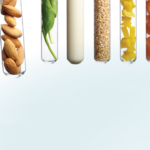
Anyone reading the recent headlines regarding calcium and vitamin D supplements is entitled to a little confusion. Is it good to take these supplements, or bad?
Well, as is often true with research findings, the answer is a bit complicated, but stay tuned for some great news! First, the bad news. For years, nutritionists, dieticians, and medical professionals have emphasized dietary calcium intake and calcium supplements, along with vitamin D, as the key to strong bones. Yet, several recent studies show that people who take calcium supplements may experience more heart attacks and strokes than those who don’t.
It turns out that a portion of the calcium that is not taken up by bones can get into blood vessels, leading to hardening of the arteries. In other words, calcium can get into the wrong places and cause harm. Does this mean we can prevent heart disease by giving up calcium supplements? No. Research continues to show that heart disease is the leading killer of both men and women, whether or not they take calcium supplements.
To complicate matters for consumers, vitamin D – which is often taken along with calcium – has also come under some scrutiny.
The popularity of vitamin D supplementation has soared in recent years due to the nutrient’s many health benefits, and the realization that D deficiency is widespread. Taking vitamin D is generally a good thing. However, while the sunshine vitamin’s ability to promote calcium absorption is a boon to bones, it is potentially problematic for heart health, as it can increase the body’s calcium burden.
Okay, now the good news! A little-known vitamin, K2, is a fat-soluble nutrient that works with vitamin D to guide calcium into bones and teeth, and keep calcium out of soft tissues like arteries.
In other words, vitamin K2 allows us to fully and safely reap the benefits of vitamin D and calcium, while also bringing its own health benefits to the table. Indeed, a lack of K2 could play a role in both major and minor ailments including osteoporosis, heart disease, varicose veins, diabetes, facial wrinkles, and more.
VITAMIN K2-LONG MISUNDERSTOOD
If you’re wondering why you haven’t heard about vitamin K2 until now, it’s because it was overlooked for decades as another form of vitamin K was allowed to steal the spotlight. The better-known vitamin K1 is easily obtained in our diet through green leafy vegetables and the body uses vitamin K1 for blood clotting. Deficiency of vitamin K1 is extremely rare and the symptoms are obvious: bruising and bleeding.
Vitamin K1 and K2 were both discovered in the 1930s and at the time researchers assumed they were both blood-clotting vitamins. That faulty assumption caused vitamin K2 to be overlooked for more than two generations. Vitamin K2 does not come from green leafy vegetables, does not participate in blood clotting, and its deficiency is not obvious. When we are lacking in vitamin K2, even marginally, it won’t show by obvious signs such as bruising, but bone and heart health can suffer silently for decades.
MAJOR HEALTH BENEFITS OF VITAMIN K2

Bone health
Vitamin K2 boosts bone health in several ways. Very simply, it activates a carrier protein that guides calcium into bones and teeth to improve bone strength. Studies show K2 and D3 together boost bone density far better than either nutrient alone. But the bone benefits of K2 exceed what would be expected from its effect on bone density. Bone mineral density (BMD) is only one aspect of bone health – although it’s the one that gets the most attention – and K2 seems to improve bone quality out of proportion to its BMD effects.
Best of all, the most recent vitamin K2 clinical trials show that optimal benefits for bone and heart health are seen within one to three years. That may sound like a long time, but keep in mind that osteoporosis doesn’t develop overnight. It took decades of K2 deficiency for calcium to leech out of bones, so building it back up in a couple of years is impressive.

Heart Health
Calcium isn’t normally present in our arteries, so the amount of calcium in the main arteries that feed the heart, the coronary arteries, is considered an accurate predictor of your risk of heart attack. Calcium can build up on the elastic tissues of any artery, causing the blood vessel to stiffen, which contributes to heart disease.
But vitamin K2 has been shown to reduce arterial stiffness, helping to restore soft, flexible arteries and reduce the calcification that threatens heart health.
Wrinkles
Calcium can accumulate microscopically on the elastic tissues in the skin. When this happens, skin becomes less elastic and sags. By preventing this accumulation, vitamin K2 helps maintain firm, resilient skin.
![]()
Varicose veins
When calcium accumulation affects veins, stiffening them and slowing blood flow, the result can be hard, bulging, distended veins. The same vitamin K2-dependent mechanisms that protect arteries play an important role in preventing and healingvaricose veins.
WHO BENEFITS FROM K2?
The benefits of vitamin K2 extend to everyone, throughout life.
Vitamin K2 is as important as folic acid for pregnant women and their growing babies. In the first trimester the nutrient is essential for the development of the baby’s primary teeth and healthy facial structure; in the second trimester the formation of eventual adult teeth and skeleton require K2. Despite the crucial importance of K2 in early pregnancy, studies show that mom’s K2 levels tend to be at their lowest in the third trimester, so expectant mothers should continue to pay attention to their K2 intake at this time.
Bone growth is highest during childhood and adolescence, so kids and teens have especially high requirements for vitamin K2 to nourish their growing bodies and ensure healthy teeth and bones. Vitamin K2 has been shown to counteract the negative changes in bone health seen in menopausal women. Both men and women over 50 show high levels of vitamin K2 deficiency, which can accelerate the rate of bone loss and vascular calcification.
VITAMIN K2 FROM FOODS
How much K2 are we getting in our daily diet? The short answer is “not enough.” As with vitamin D, studies show that most apparently healthy adults are deficient in K2. When there isn’t enough K2 to keep calcium in its place, we are moving slowly down the road to heart disease, osteoporosis, and other serious health conditions. Dietary vitamin K2 comes from two main sources. First, animal fat such as egg yolks and butter contain K2, but only in meaningful amounts if the hens and cows are out on pasture eating green grass. Grassfed animal foods are hard to come by, so, fortunately, fermented foods offer a second, more reliable dietary source of K2. Certain bacteria produce vitamin K2, which is why some (but not all) fermented dairy products are rich in vitamin K2, notably Gouda and Brie cheeses. Natto, a fermented Japanese soybean food, is the
highest known source of vitamin K2 in food. Studies from Japan show that natto consumption is associated with better bone and heart health. Look for natto at a local Asian market, but be aware that it has a unique taste and texture that can take some getting used to.

VITAMIN K2 FROM SUPPLEMENTS
Since grass-fed protein can be hard to come by, natto is hard to love, and even a cheese lover can only eat so much Brie, vitamin K2 supplements provide a consistent, convenient source of lifesaving menaquinone. Look for natto-derived vitamin K2 supplements. These will indicate “natto source” or have the designation “menaquinone-7 (MK-7)” somewhere on the label.
Safety
Vitamin K2 is very safe for adults and children, with no known toxic effects. Vitamin K2 from food and supplements has no drug interaction, except warfarin (Coumadin). Other “blood thinning” medications such as aspirin, anti-platelet aggregators, non-warfarin-type blood thinners, or other medications do not interact with vitamin K2.
Vitamin K2 – the key nutritional link
We now know that vitamin K2 is the missing piece to the puzzle of many widespread ailments. So many health conditions that we may chalk up to a normal part of the aging process are unrecognized, long-term nutrient deficiencies. By restoring our K2 intake to optimal levels, not only will we stay one big step ahead of many common health conditions, we will be able to continue safely benefiting from calcium and vitamin D supplementation!
References Howe AM, Webster WS. Vitamin K– its essential role in craniofacial development. A review of the literature regarding vitamin K and craniofacial development. Aust Dent J. 1994; 39(2):88-92. Vermeer C. Vitamin K: the effect on health beyond coagulation – an overview. Food & Nutrition Research. 2012; 56:5329-34.












